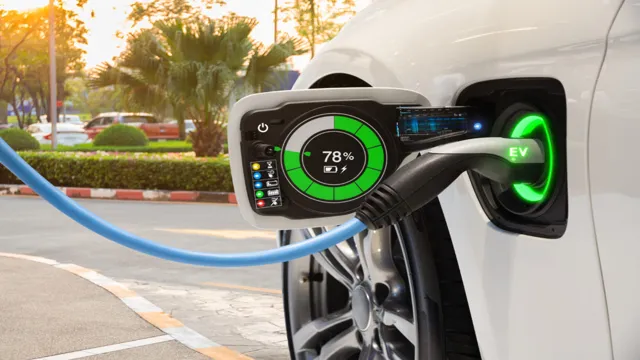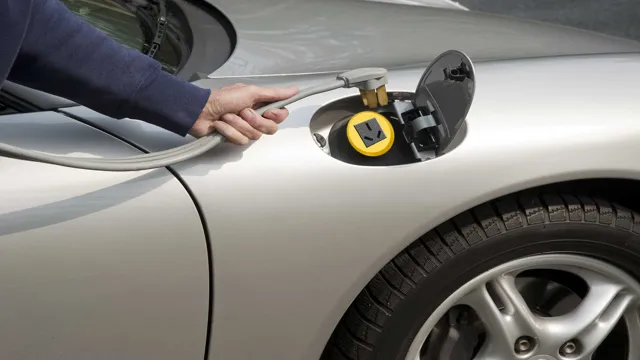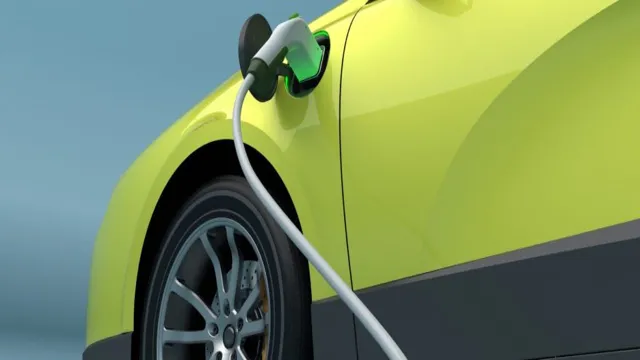Electric Cars: Charging Up on Benefits in Kind!
Have you ever thought about owning an electric car? Aside from the positive environmental impact, it can also save you money in the long run. However, owning an electric car comes with certain financial implications, particularly in terms of Benefit in Kind (BIK) tax. BIK tax refers to the tax an employer pays on behalf of their employee for any benefits they receive.
This includes company cars, which are subject to taxation based on their value and CO2 emissions. But how does BIK affect the charging of electric cars? In this blog, we’ll explore how BIK tax works and how it impacts the charging of electric cars.
What is Benefit in Kind?
If you’re currently considering switching to an electric car, then it’s important to know about Benefit in Kind (BiK). Essentially, BiK is how much tax you’ll need to pay based on non-cash benefits you receive from your employer – for example, a company car. The good news is that the government is incentivizing electric car adoption by reducing the BiK rating for zero-emission vehicles.
In fact, the BiK rate for electric cars has dropped from 16% to 0% for tax year 2020-21, potentially saving you a lot of money. But keep in mind that this rate will increase to 1% in tax year 2021-22 and 2% in tax year 2022-2 So if you’re thinking about switching to an electric car, it’s worth factoring in the tax savings when weighing up the overall costs.
Explaining the Tax System in the UK
Benefit in Kind (BIK) When it comes to the tax system in the UK, there’s a term that you’ve probably come across – Benefit in Kind, or BIK for short. It’s a term used to describe any additional benefit an employee receives from their company on top of their regular salary. This could include things like a company car, health insurance, or even free gym membership.
Essentially, if it’s not part of your salary but still adds value to your overall compensation package, it’s considered a BIK. But why is this important to know? Well, any BIK you receive is taxable, which means it’s subject to income tax and National Insurance contributions. Understanding what counts as a BIK and how it’s taxed can help you plan your finances and avoid any unexpected tax bills.

Why Electric Cars are Subject to Benefit in Kind
Electric cars have been gaining popularity in recent years because of their environmental benefits and lower long-term costs. But did you know that they are also subject to a tax called “benefit in kind” when charging at work? This tax applies to employees who receive a company car as part of their job and use it for personal purposes outside of work. The tax is based on the car’s value and emissions, and it is calculated as a percentage of the employee’s salary.
However, the UK government has introduced a zero-rated benefit in kind for electric vehicles until 2025, which means that employees who use electric cars for personal use will not be taxed on their benefit in kind. This tax incentive is designed to encourage more businesses and employees to adopt electric cars and help reduce carbon emissions. Therefore, it is important for businesses and employees to understand the benefits of electric cars and take advantage of the tax incentives available and contribute to help protect the environment.
Electric Cars and Company Car Tax Evaluation
Electric Cars and Company Car Tax Evaluation Electric cars are becoming increasingly popular because they are environmentally-friendly and cost-efficient. However, there is something else that makes them very appealing for company car fleets – the government’s Benefit in Kind (BIK) tax. The BIK tax, which is essentially a tax on the private use of a company car, is based on the car’s CO2 emissions.
The lower the emissions, the lower the tax. Because electric cars emit no CO2, they are currently subject to the lowest BIK tax rate of 1%. This makes them a very attractive option for company car fleet owners.
Not only do they save money on fuel and maintenance, but they also enjoy significant tax savings. In fact, some companies offer electric cars as a perk or incentive to their employees. It’s a win-win situation for both the company and the employee.
The Advantages of Benefit in Kind on Charging Electric Cars
If you’re a company car driver who is considering charging an electric vehicle, you should be aware of the advantages of benefit in kind (BIK) on charging electric cars. By using workplace charging facilities, you could benefit from a reduced rate of BIK, which could make running an electric vehicle a more affordable option than other types of vehicles. Additionally, using workplace charging facilities could save you time and money since you’ll be able to charge your car during working hours, meaning that you won’t need to worry about finding charging points during your free time.
With the BIK incentives that are often available for electric vehicles, you could be saving even more money while doing your bit for the environment. So, if you’re looking to reduce your carbon footprint while benefitting from cost savings at the same time, electric vehicles are definitely worth considering.
Reduced Tax Rates for Companies
Reduced Tax Rates for Companies There are numerous advantages to companies offering charging points for electric vehicles as a Benefit in Kind to their employees. Not only does it encourage employees to reduce their carbon footprint, but companies can also take advantage of various tax incentives. One of the biggest benefits is reduced tax rates for companies that install charging points.
Under the current tax code, companies can claim 100% first-year allowances on the equipment used to power the charging points, meaning that they do not have to wait for the usual write-off period. This can lead to significant savings on corporation tax, which makes it a beneficial option for many businesses. Furthermore, it’s also possible for companies to reclaim the VAT on the installation costs and your electricity bills.
Installing charging points at a workplace demonstrates that a company is forward-thinking, socially responsible, and in tune with the fast-changing world of technology. It will be a valuable point of differentiation for a company in the eyes of customers, employees, and government.
Incentives for Employee Electric Car Use
As electric cars become more commonplace, many companies are looking into incentives for employees who use them as their primary mode of transportation. One popular option is providing a Benefit in Kind (BIK) on charging electric cars. This essentially means that the employee won’t have to pay tax on the electricity they use to charge their car at work.
It’s a win-win situation, as employees can save money on their electric bills and the company can promote sustainable transportation. Additionally, offering a BIK can encourage more employees to switch to electric cars and help to reduce the business’s carbon footprint. It’s important to note, however, that the rules surrounding BIKs can be complex, so it’s worth working with a professional to ensure that everything is set up correctly.
In the end, offering a BIK on charging electric cars is a great way for companies to promote sustainability and support their employees’ environmentally conscious choices.
Considerations for Companies and Employees
Many companies are considering the benefits of allowing employees to charge their electric cars at work, but with it comes the taxable benefit in kind (BIK) for the employee. BIK is the benefit an employee receives from the use of an employer-provided vehicle or workplace charging point. Companies need to be aware of the BIK implications and ensure they are compliant with tax regulations.
Meanwhile, employees must understand that charging their cars at work can result in additional tax liability. However, it is worth noting that some companies may choose to cover the cost of electricity used for workplace charging, which would not be considered a BIK. It is essential for companies and employees to consider these factors before implementing workplace charging points to ensure compliance and avoid unexpected tax spend.
Running Costs and Savings
Running Costs and Savings is a crucial consideration for both companies and employees. For companies, cutting down on costs is essential to maintaining profitability, and one way to achieve this is by reducing unnecessary expenses. This can be achieved through various measures, such as reviewing equipment and software subscriptions, reducing travel expenses by leveraging technology, and transitioning to remote work setups.
On the other hand, employees can also contribute to cost savings by adopting cost-effective practices, such as walking or cycling to work, reducing energy consumption in the office, and minimizing paper usage. This not only benefits the company but also individual employees, as it can lead to cost savings in their personal lives as well. Ultimately, it’s essential for both companies and employees to prioritize cost savings, as it can lead to financial stability and a healthier bottom line.
Electric Car Options and Availability
When it comes to electric cars, there are plenty of options available for companies and employees alike to consider. With advances in technology, there are now electric vehicles that can match or even surpass the performance of their gas-powered counterparts. Plus, they offer a more environmentally-friendly driving experience.
However, it’s important to think about factors like range, charging infrastructure, and upfront costs when considering an electric car. For companies, it may make sense to offer electric vehicle incentives or charging stations to encourage employees to make the switch. And for employees, it’s worth doing the research to find the electric car that best fits their needs and budget.
With a little bit of planning, making the shift to an electric car can benefit everyone involved, from the environment to the bottom line.
Conclusion
As we charge forward into the future of clean energy, the benefits of electric cars become increasingly enticing. But it’s not just the environmental impact that’s worth considering – the financial benefits of benefit in kind tax (or lack thereof) make switching to an electric car a savvy move too. So, charge up, sit back, and enjoy the ride.
Your wallet (and the planet!) will thank you.”
FAQs
What is a benefit in kind (BIK) on charging electric cars?
A benefit in kind (BIK) on charging electric cars is a tax that an employer must pay on behalf of their employees for the use of a workplace charging point to charge their electric cars.
Is the amount of benefit in kind (BIK) on charging electric cars fixed?
The amount of benefit in kind (BIK) on charging electric cars is not fixed and may vary depending on the specific charging arrangement.
Who is responsible for paying the benefit in kind (BIK) on charging electric cars?
The employer is responsible for paying the benefit in kind (BIK) on charging electric cars, but it is worth noting that the employee may be required to report the benefit on their tax return.
Are there any exemptions to the benefit in kind (BIK) on charging electric cars?
Currently, there are no exemptions to the benefit in kind (BIK) on charging electric cars. However, this may change as the adoption of electric vehicles increases and the associated infrastructure is further developed.




